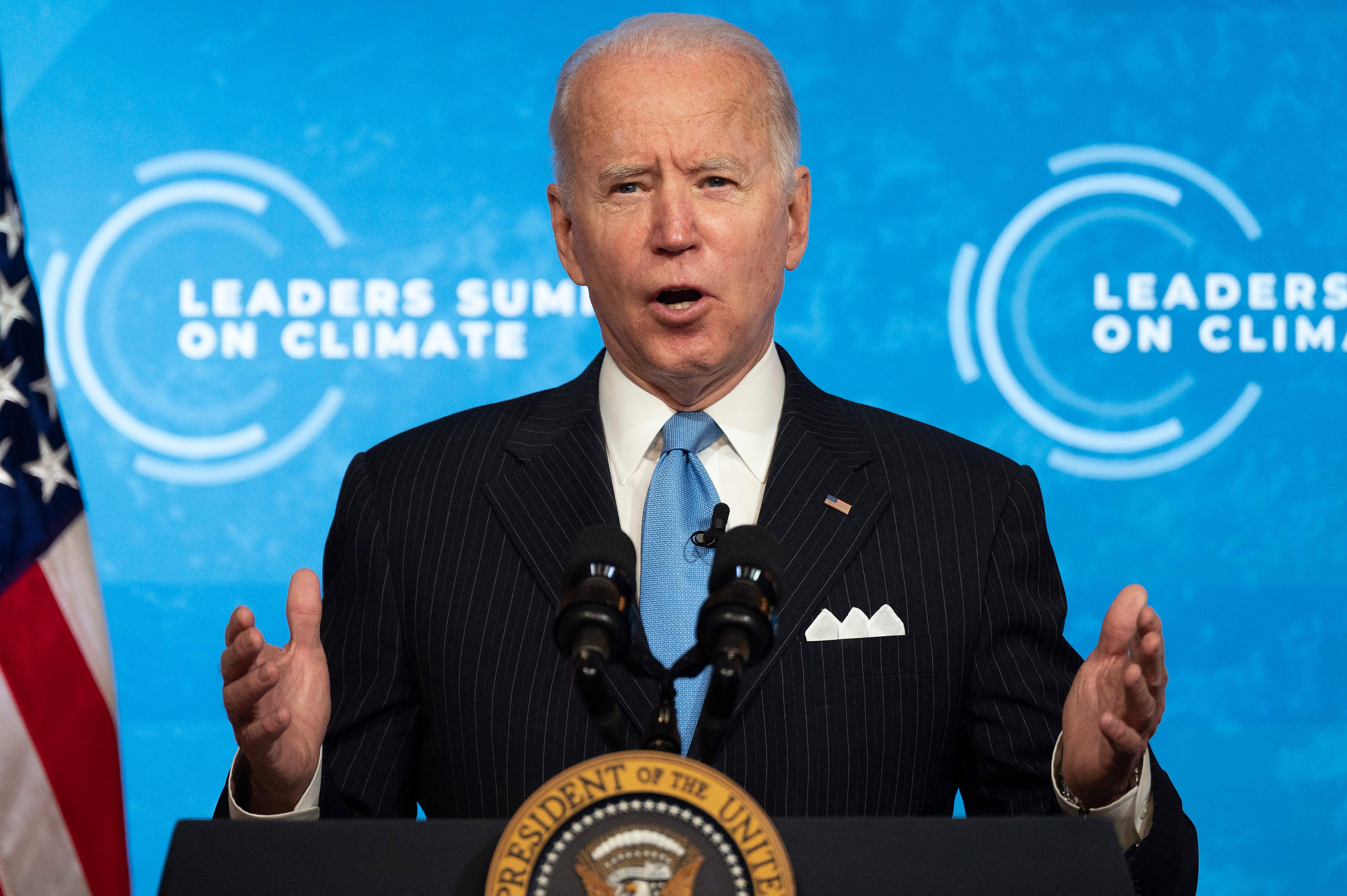Biden orders federal strategy to curb climate change risk to economy

US President Joe Biden delivers remarks and participates in the virtual Leaders Summit on Climate Session 5: The Economic Opportunities of Climate Action from the White House in Washington, DC, on April 23, 2021.
Jim Watson | AFP | Getty Images
President Joe Biden is directing the federal government to develop a strategy to curb the risk of climate change on public and private financial assets in the U.S, the White House announced on Thursday.
The executive order, titled Climate Related Financial Risk, directs National Climate Advisor Gina McCarthy and Director of the National Economic Council Brian Deese to develop a government-wide plan to identify and disclose climate risk on government programs, assets and liabilities within the next 120 days.
The order also requires Treasury Secretary Janet Yellen, the head of the Financial Stability Oversight Council, to deliver a report on financial risk data related to climate change. The council includes Federal Reserve Chairman Jerome Powell and heads of the Securities and Exchange Commission.
The move is part of the Biden administration’s longer-term agenda to cut U.S. greenhouse gas emissions nearly in half by 2030 and transition to a net-zero economy by mid-century while curbing the damage climate change poses to all economic sectors.
“The agency actions spurred by the President’s directive today will help safeguard the financial security of America’s families, businesses, and workers from the climate related financial risks they are already facing,” according to a fact sheet released by the White House.
“We know that the climate crisis, whether through rising seas or extreme weather, already presents increasing risks to infrastructure, investments, and businesses,” it said. “Yet, these risks are often hidden.”
Biden’s order follows a recent report by the International Energy Agency that warns the pathway to a net-zero future is “narrow” as many countries fail to back up various carbon emissions pledges and urges an end to investment in new fossil fuel projects.
Tracey Lewis, a senior climate financial policy analyst at the international environmental organization 350.org, said the president’s order must mobilize the entire financial sector to end fossil fuel financing.
“The Federal Reserve must act on its key role in tackling the climate crisis, including Biden appointing a real climate leader to reimagine the Fed in its role as the Peoples’ Bank,” Lewis said.
Biden’s order directs Labor Secretary Marty Walsh to cancel or revise rules from the Trump administration aimed to prevent investment firms from accounting for environmental, social and governance factors like climate risk in investment decisions, a move the Biden administration said will help protect workers’ pensions.
Under Biden’s order, the federal government will also develop and publish an assessment of its climate risk exposure to help guide Biden’s budget projections.




